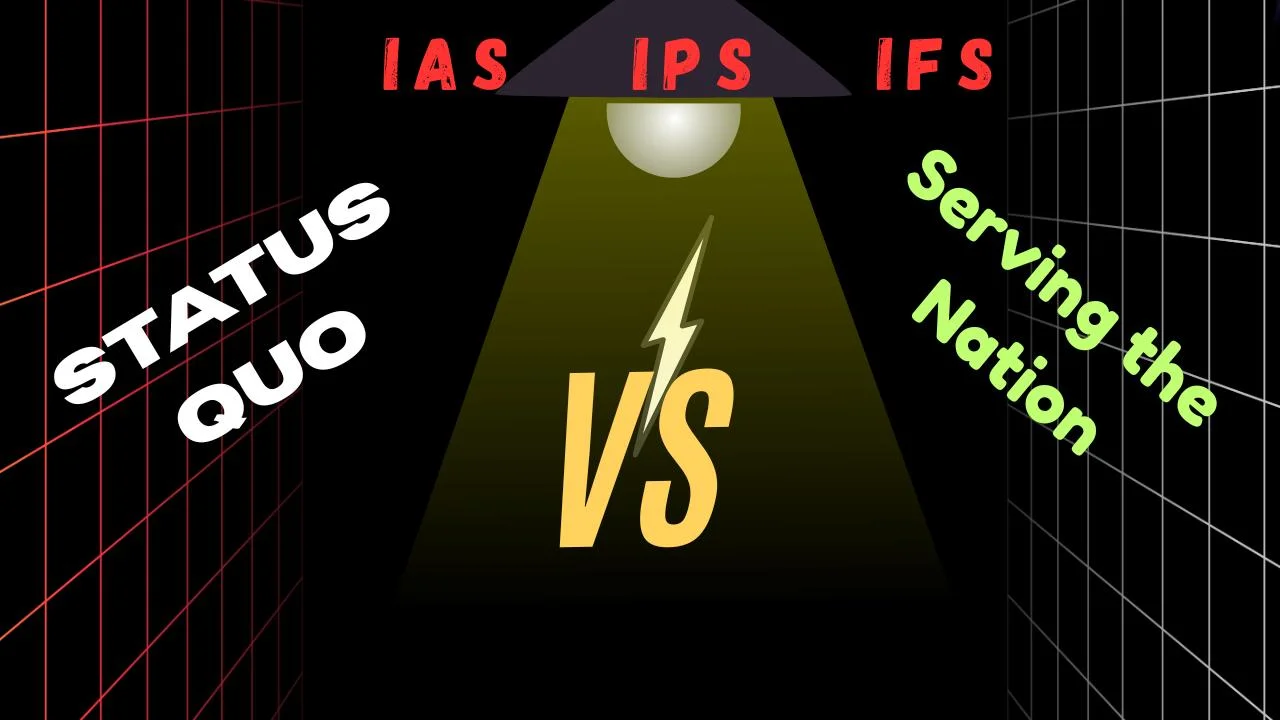“The best way to find yourself is to lose yourself in the service of others.” – Gandhi
One country that has got the independence at the expenses of thousands of
sacrifices of life, aspires to become one country where on true sense no
remnant of colonial hangover will persist, people would be self-empowered
with the brotherhood spirit at the pivot, no discrimination on the basis of
caste, sex, race, religion; one country that would lead the world without
sacrificing its soul.
Being the citizen of the country, everybody should contribute in this process
of nation building with whatever they can offer and afford with. Every
contribution counts the same and equal. Nothing is big or small. IAS, IPS, IFS
etc also on true sense are the service to the nation, civil in form and texture,
an ideal form of the public service.
Becoming an IAS, IPS, or IFS etc officer is a true service to the nation,
depending on individual motivations and the capacity of the officers to uphold
their service’s noble ideals imbibed with moral ethics and integrity during the
time of discharging their duties. Each service offers unique pathways to
contribute to India’s development and interests, but the reality is a complex
mix of individual aspirations for power and vested interest, with perceptions
of corruption sometimes undermining the ideal of public service.
Serving the Nation (The Ideal)
Administrative Power and Public Impact:
The Indian Administrative Service (IAS) offers direct engagement with
grassroot people to administration to policy-making, allowing officers
to shape public life and contribute in consolidating development.
National Security and Justice:
The Indian Police Service (IPS) focuses on maintaining law and order
and ensuring internal security, be it in a city or a district touching
neighbourhood border or the fight against the criminalities, which is
a vital service to the nation.
Global Diplomacy:
The Indian Foreign Service (IFS) represents India on the world stage, handling diplomacy and global affairs, be it with some state or states or any international body, an indispensable role for protecting national interests internationally.
Status quo and Power (The Perversion and Reality)
Prestige and Influence:
The civil services are known for their high social status, offering a platform for power, prestige, and significant influence not only within the government structure but also to the other domains.
Aspiration for Riches and Comfort:
For some, the services represent a gateway to wealth, perks, job
security, and a comfortable lifestyle, which can sometimes overshadow
the spirit of service.
Critiques of Corruption:
Some public discourse suggests that the system is fraught with corruption, where power malpractices and cunningness are the norms, and honesty is an exception.
Finding the Balance
Aptitude and Aspirations:
The choice of service should align with an individual’s passion, love
and aptitudes, whether one seeks administrative control, security, or
international engagement.
Noble Cause vs. “An End in Itself”:
While the services offer opportunities for positive impact, some argue
that the UPSC Civil Services has become an end in itself, focusing
more on power than on true service to the nation, though later on
ethics, integrity and aptitude have been included in the UPSC Civil
Services entrance examination and also being taught in the respective
service’s training academy.
Individual Choice:
The individual should not be bereft of human values. An individual
without one human soul is nothing but a corpse. Entry into the Civil
Services should reflect a genuine desire to serve the nation and
contribute to its betterment consolidation in a meaningful way, so that
the future generation would survive in a sustainable developmental
environment.

